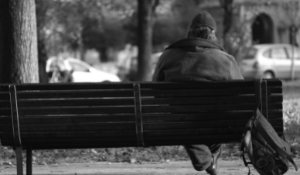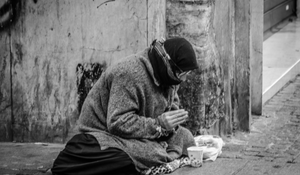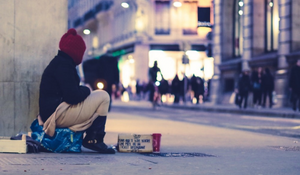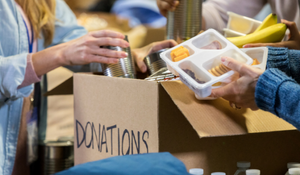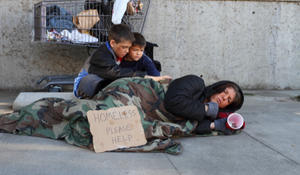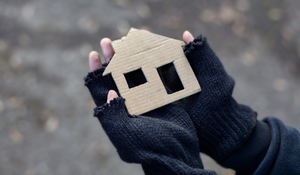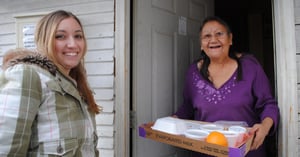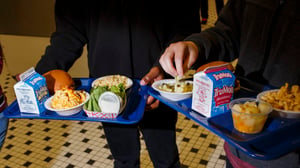In the normal course of business, this blog researches and reports the issues that are having an impact on the world of social services. However, when journalists at large are out in front on important stories we are eager to share their work here in our blog space. Today, we would like to summarize the reporting of New York Times journalists Michael Kimmelman and Lucy Tompkins on the life changing work in support of the homeless going on in the city of Houston.
Topics: Homeless & Food Pantry, social justice
The title of this blog is a testimony to the noble instincts that engender the highest aspirations of America's social services community. The Stewart B. McKinney Homeless Assistance Act of 1987 initially authorized the Health Care for the Homeless Program. (No one we polled in the past two weeks had any idea that healthcare was available to our homeless population.) In 1996, Congress combined the HCH Program with Community Health Centers, Migrant Health Centers, and Primary Care in Public Housing under the Consolidated Health Center Program. The Patient Protection and Affordable Care Act (ACA) provided additional resources to expand services and delivery sites.
Topics: Homeless & Food Pantry, social issues
Did you know that more than half a million homeless people in the United States?
That figure is concerning in general, but it is even more so when you consider that the causes of homelessness are easily remediable. Many people mistakenly believe that homelessness is the result of a person's own personal failures in life. That could not be further from the truth, as there are numerous other structural issues that are directly responsible for homelessness in America.
Let's look at how structural inequality contributes to homelessness.
Topics: Homeless & Food Pantry, social issues
It's not difficult to find reports on the state of the world's food supply. According to the United Nations, the world's food production will need to increase by 60% by 2050 to feed a projected population of 9.6 billion people. This is a daunting task, made even more difficult by the threat of climate change, which is expected to reduce crop yields by up to 25% in some areas.
Food banks are an important part of the social safety net in the United States. They provide food to those who cannot afford it. Food banks get their supplies from two sources: donations and government surplus. This article will go over how food banks operate.
Topics: Homeless & Food Pantry, social issues
Covid-19 is still a hot topic in both the national and international media. The virus, which originated in Wuhan, China, has caused widespread panic and has had a significant impact on the global economy. The number of confirmed cases fluctuates as one variant runs its course until another new variant appears. Countries are taking drastic measures to try to control the virus's spread and subsequent variants. Millions of people have died as a result of the virus, and many more have been infected. The pandemic has forced businesses to close, disrupted global supply chains, and caused global stock markets to plummet. Economists are concerned that the economic upheaval will continue indefinitely.
Topics: Homeless & Food Pantry, social issues, Covid-19/Pandemic
A case worker who has worked her entire career feeding the hungry in America recently told us:
"When I was a girl and hesitated to eat my spinach, my eagled-eyed mother would notice and say, ' What about all the starving children in China? Think of them and be grateful you have enough to eat. Finish your spinach.' Like so many other middle-class Americans, I believed hungry children lived in China, India, or Africa, not in America. I believed that until I went into social work at the largest food bank in Pennsylvania. That opened my eyes.
Topics: Homeless & Food Pantry, social issues
In Their Own Words Social Workers Reflect on the Pandemic's Fatal Blow
(Excerpted from an article by Paul Moakley in Time Magazine, "Deaths Amoung America's Homeless Are Soaring in the Pandemic. A Photographer Captures a Community In Crisis")
Topics: Homeless & Food Pantry, mental health, social issues, Covid-19/Pandemic
Social workers Dre’ Johnson and Renee Brean are part of a pioneering new approach to policing in Rochester, New York. They belong to the city's “person in crisis” team – a unit of mental health and behavioral professionals who attend police calls where a person may be suffering a mental health episode.
The premise behind the "person in crisis" team is simple: it contends that for all their training and skills, police are not equipped to deal with the complexities that a mental health crisis requires. By sending mental health professionals along to 911 calls that may involve potential psychological breakdowns, officials hope that these situations can be dealt with more sensitively, and more safely.
Topics: Homeless & Food Pantry, mental health, social workers, what social workers do
Increasing Demand…
Meals On Wheels, which delivers meals to the elderly in their homes and at senior centers, has seen demand for their services explode since the pandemic started.
- When COVID-19 hit, a staggering 89% of Meals On Wheels programs reported increased demand for meals, practically overnight.
- 79% of Meals On Wheels programs saw their demand double.
- Older adults who were mobile prior to the pandemic can no longer safely go to stores to buy their own food, and many do not have loved ones close by to help them through this time. Add this to the roster of seniors who were already homebound.
Topics: Elderly/Aging Long Term Care, Homeless & Food Pantry, Covid-19/Pandemic
Only social workers who deal with childhood hunger every day realize how devastating the COVID-19 pandemic has been for millions of everyday school children who attend school with your children and mine. For many of your children’s classmates, not attending in-person school has meant missing 5 essential meals a week and, in many cases, the bulk of their nutrition.
Topics: Homeless & Food Pantry, education, what social workers do, Covid-19/Pandemic

